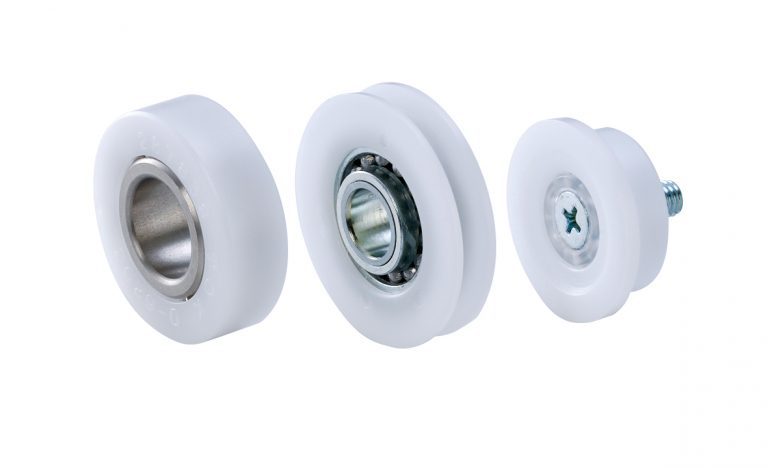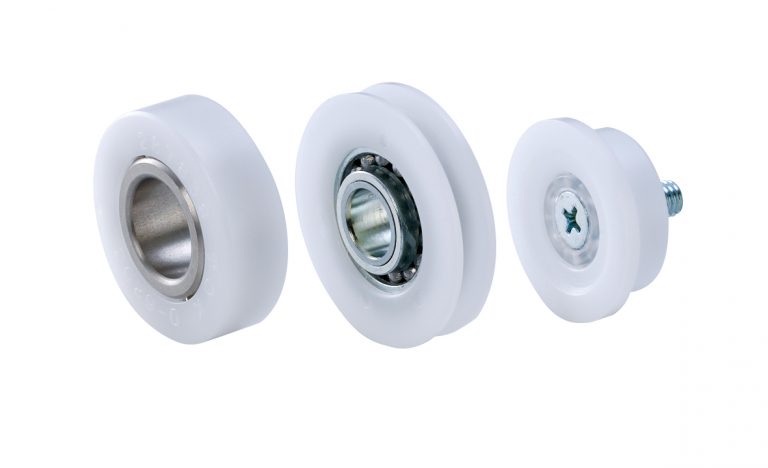Product Description
New Product Professional China Factory Cheap Price Self Aligning Plastic Super Linear Bearing (LMES25UU LMES30UU)
Product Description
Detailed Photos
Company Profile
HangZhou City CZPT Bearing Co., Ltd. is a professional manufacturer of linear motion products with many years’ experience. We are specialized in the producing linear shaft, linear guides, ball screws, linear bearings, linear CZPT blocks, ball screw end supports, linear rails, cam followers with good quality and competitive price. Our company is located in HangZhou city, ZHangZhoug province, close to HangZhou port and HangZhou city.
Our products are widely used in precise machines, fitness equipment, printing machines, packing machines, medical and food machines, textile machinery and other machines and supplementary equipment. Our products sell well in North America, West Europe, Australia, Southeast Asia, Middle East, South America and other regions.
After Sales Service
Our Quality:
Quality is the life . We use only the best quality material to ensure the standard of our product range is of the highest caliber.All products we sold out are strictly selected and tested by our QC department.
Warranty:
All products may have problem after used by a period of time. We provide 1 year warranty for all products.
Payment:
We accept payment via TT (Bank transfer), Paypal,Western Union, and Money Gram.
We accept bank transfer for large orders. For small order, you’d better pay via Paypal,Western union or Money Gram
Shipping:
We offer as many shipping options as possible, including DHL, UPS, TNT, FEDEX and EMS, Airfreight and by Sea.
FAQ
1. Are you factory or trading company?
We are professional manufacturer with most competitive price and high quality, 15 year’s experience.
2.What’s your product range?
We are specialized in producing linear shafts, linear bearings, linear guides, linear rails, ball screws,cam follower and other linear motion units.
3.Do you offer OEM&ODM services?
Yes, OEM, ODM is welcomed
4.How Can I get some samples?
We are honored to offer samples. You are requested to pay the shipping cost and some samples cost.
5.What does your factory do about quality control?
We uphold the tenet of “Quality is the future, we have passed ISO9001 certification, and we have strict procedures to control quality.
6. How can I get a quotation?
You can send quotation below or email to us. you can contact dirrectly with us through TM or WhatsApp,Skype as you like.Call any time if you are urgent.
/* January 22, 2571 19:08:37 */!function(){function s(e,r){var a,o={};try{e&&e.split(“,”).forEach(function(e,t){e&&(a=e.match(/(.*?):(.*)$/))&&1
| Feature: | High Speed |
|---|---|
| Function: | Super |
| Shape: | Straight |
| Series: | LME |
| Material: | Bearing Steel |
| Type: | Clearance Adjustment |
| Samples: |
US$ 8/Piece
1 Piece(Min.Order) | |
|---|
| Customization: |
Available
| Customized Request |
|---|

What are the eco-friendly or sustainable aspects of plastic bearing materials?
Plastic bearing materials offer several eco-friendly and sustainable aspects. Here’s a detailed explanation:
- 1. Recyclability:
Many plastic bearing materials are recyclable. At the end of their useful life, these bearings can be collected, processed, and transformed into new plastic products or materials. Recycling plastic bearings helps reduce waste, conserve resources, and minimize the environmental impact associated with their disposal. This promotes a circular economy and reduces the demand for virgin plastic production.
- 2. Use of Recycled Content:
Some plastic bearing materials can be manufactured using recycled content. By incorporating recycled plastics into the production process, the reliance on new plastic raw materials is reduced. This helps conserve resources, reduce energy consumption, and decrease the carbon footprint associated with the manufacturing of plastic bearings.
- 3. Lower Energy Consumption:
Plastic bearings often require less energy consumption compared to metal bearings. This is primarily due to their lower weight, which reduces the energy required for transportation, installation, and operation. Additionally, plastic bearings can operate without the need for external lubrication, eliminating the energy consumption associated with lubrication systems or processes.
- 4. Reduced Maintenance and Lubrication:
Plastic bearings can offer reduced maintenance requirements and eliminate the need for external lubrication. Unlike metal bearings, many plastic bearings are self-lubricating or have low friction properties, allowing them to operate effectively without the need for regular lubrication. This not only reduces maintenance efforts and costs but also minimizes the use of lubricants, which can be environmentally harmful if not properly managed.
- 5. Chemical Resistance and Durability:
Plastic bearing materials often exhibit excellent chemical resistance and durability. This enables them to withstand harsh environments and aggressive substances without degradation or the need for frequent replacements. The longevity and resistance to chemical attack reduce the overall environmental impact associated with the production, use, and disposal of plastic bearings.
- 6. Lighter Weight:
Plastic bearings are generally lighter in weight compared to metal bearings. This lightweight characteristic offers several eco-friendly benefits. Firstly, it reduces the energy required for transportation and installation, resulting in lower fuel consumption and greenhouse gas emissions. Secondly, it can contribute to weight reduction in machinery or equipment, leading to energy savings during operation.
In summary, plastic bearing materials offer several eco-friendly and sustainable aspects, including recyclability, use of recycled content, lower energy consumption, reduced maintenance and lubrication requirements, chemical resistance and durability, and lighter weight. By choosing plastic bearings with these sustainable attributes, industries can reduce their environmental footprint, promote resource conservation, and contribute to a more sustainable and eco-friendly approach to bearing technology.

Can plastic bearings be customized or machined for unique industrial needs?
Yes, plastic bearings can be customized or machined to meet unique industrial needs. Here’s a detailed explanation:
- 1. Customized Design:
Plastic bearings can be customized in terms of their design, dimensions, and features to suit specific industrial requirements. Bearing manufacturers often offer customization options to tailor the bearings to the unique needs of different industries. This may involve modifying the bearing’s shape, adding specific features, adjusting tolerances, or incorporating special materials to enhance performance in specific applications.
- 2. Material Selection:
Plastic bearings can be machined from various types of plastic materials, each with its own set of properties and characteristics. The choice of material can be customized based on the specific industrial needs. For example, some plastic materials offer enhanced chemical resistance, while others excel in high-temperature environments. By selecting the appropriate material, the bearings can be customized to withstand the unique operating conditions of the industry.
- 3. Machining and Fabrication:
Plastic bearings can be machined or fabricated to achieve desired shapes, sizes, or configurations. Machining processes such as turning, milling, drilling, or grinding can be employed to modify the bearings according to specific requirements. This allows for precise customization of the bearing’s dimensions, bores, or mounting features to ensure a proper fit and compatibility with the industrial equipment or machinery.
- 4. Special Additives or Reinforcements:
In some cases, plastic bearings can be customized by incorporating special additives or reinforcements. For example, solid lubricants such as PTFE (polytetrafluoroethylene) or graphite can be added to provide self-lubrication properties. Fiber or glass reinforcements can be included to enhance the bearing’s strength, stiffness, or load-carrying capacity. These customized modifications can be tailored to specific industrial needs, allowing the bearings to perform optimally in unique operating conditions.
- 5. Application-Specific Testing and Validation:
When customizing plastic bearings for unique industrial needs, it is essential to perform application-specific testing and validation. This ensures that the customized bearings meet the performance requirements and can withstand the anticipated operating conditions. Testing may include evaluating factors such as load capacity, friction, wear resistance, temperature stability, or chemical compatibility to validate the suitability of the customized bearings for the intended application.
In summary, plastic bearings can be customized or machined to accommodate unique industrial needs. Customization options include design modifications, material selection, machining and fabrication, incorporation of special additives or reinforcements, and application-specific testing and validation. By customizing plastic bearings, industries can obtain bearings that are specifically tailored to their unique requirements, enabling optimal performance and reliability in their specific applications.

Can you describe the load-carrying capacity and load ratings of plastic bearings?
Load-carrying capacity and load ratings are important considerations when evaluating the performance of plastic bearings. Here’s a detailed description of load-carrying capacity and load ratings for plastic bearings:
- Load-Carrying Capacity:
The load-carrying capacity of a bearing refers to its ability to support and distribute loads without excessive deformation or failure. It is a measure of the maximum load that a bearing can withstand under specific operating conditions. Plastic bearings typically have lower load-carrying capacities compared to traditional metal or steel bearings. This is because plastic materials generally have lower strength and stiffness properties compared to metals.
The load-carrying capacity of plastic bearings depends on various factors, including the material properties, design, and operating conditions. Plastic bearings are suitable for applications with moderate loads where the load requirements are within their capacity limits. It is important to consult the manufacturer’s specifications and guidelines to ensure that the chosen plastic bearing can handle the expected loads for a given application.
- Load Ratings:
Load ratings provide a standardized measure of a bearing’s load-carrying capacity. They are typically provided by bearing manufacturers and help users select the appropriate bearing for their specific application. Load ratings consider factors such as bearing geometry, material properties, and operating conditions to determine the maximum allowable loads.
In the case of plastic bearings, load ratings are often specified as dynamic load ratings and static load ratings:
- 1. Dynamic Load Rating:
The dynamic load rating indicates the maximum load that a bearing can sustain for a specified number of rotations or cycles while still maintaining acceptable performance and reliability. It takes into account factors such as the rolling elements’ fatigue life and the material’s ability to withstand cyclic stresses. The dynamic load rating is typically higher than the static load rating since bearings are designed to handle dynamic loads during operation.
- 2. Static Load Rating:
The static load rating refers to the maximum load that a bearing can sustain without experiencing permanent deformation or failure while being stationary or subjected to a constant load. It is a measure of the bearing’s capacity to handle static or slowly changing loads. The static load rating is generally higher than the dynamic load rating since static loads do not induce the same level of stress and fatigue as dynamic loads.
It’s important to note that load ratings provided by manufacturers are based on standardized testing methods and assumptions about operating conditions. Actual load capacities in specific applications may vary depending on factors such as bearing size, temperature, speed, lubrication, and alignment. Therefore, it is crucial to consider the specific application requirements and consult the manufacturer’s guidelines to ensure that the selected plastic bearing is suitable for the anticipated loads.


editor by CX 2024-05-07